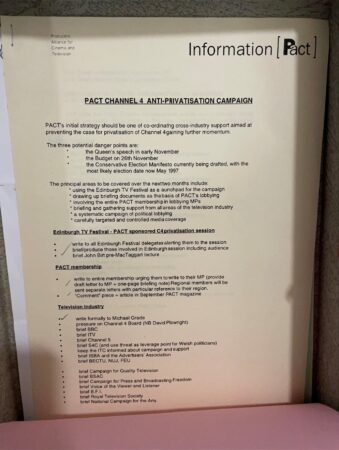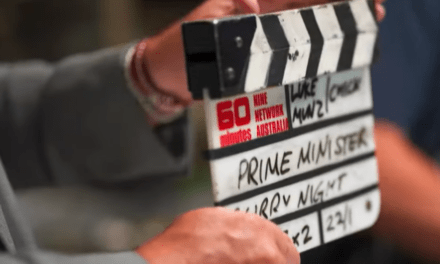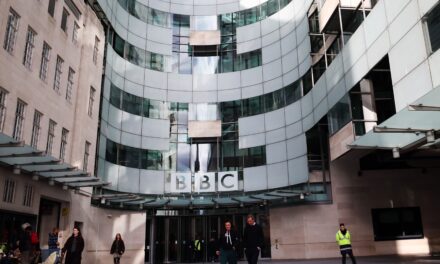There’s an avalanche of anniversaries coming in 2022, a veritable tsunami of television history. The big one is the BBC’s centenary, starting with the publication of David Hendy’s The BBC: A Peoples’ History in January, and running through the year to climax in November. It’s a pity that BBC4 can no longer commission historically-informed documentaries to go with this event. We will just have to make do with a repeat of John Wyver’s excellent Drama Out of a Crisis: a Celebration of Play for Today from 2020. It’s also a pity that November has been a popular date to start broadcasting services, because November 2022 is also the fortieth anniversary of the launch of Channel 4 and S4C. So far there are fewer plans to mark these two anniversaries for obvious reasons. Everyone thinks that the BBC has been a hundred years old for most of its existence, but being middle-aged does not suit Channel 4’s image at all.
The BBC’s anniversary celebrations will be profoundly political. The new minister for culture, Nadine Dorries, will soon be deciding on the level of the licence fee for the next five years. To put it politely, she is no friend of the BBC. As Andrew Anthony’s recent Observer profile put it “she began the job by telling an event at the Conservative party conference that the BBC might not be here in 10 years’ time – a comment that was guaranteed to grab headlines”. This follows the depressingly fashionable belief that Netflix is about to put all national broadcasters out of business. The standard riposte to politicians who spout this idea used to be to ask them when they last appeared on a Netflix news bulletin. But since the Brexit “debate” no politician seems to value BBC news anymore. For those three Brexit years, the BBC failed to find a consensual common ground from which to erect a balanced discourse… not surprising because no balance is possible when a ‘yes/no’ answer is required to a tangled complex of difficult issues. The new director general Tim Davie is now sending all its journalists to do penance (ordering an “impartiality review” across all output), because he knows the BBC has precious few friends among politicians right now.
In these tricky circumstances, the BBC will be certain to use its centenary to emphasise its centrality to British life across all its nations and regions. There will be plenty of nostalgia for favourite programmes, but also a canny mobilisation of the BBC’s wartime role in news management and propaganda. There will be an emphasis on its pioneering role in new technologies, from broadcasting itself to the BBC Acorn computer and its development of reliable streaming (a trick that still eludes ITV), and even of its role as a home for S4C. There will also be a judicious amount of self-criticism, particularly around the Savile abuse scandal, along with mockery of the more “establishment” aspects of past programme practices, particularly those which could be seen to be linked to excessive government influence. Any culture secretary faced with this year-long demonstration of cultural centrality would be wise to be careful. Dorries, however, an instinctive populist in the Johnson mould, is not known for the consistency or the wisdom of her comments. As Anthony pointed out, “there have been 13 culture secretaries in the past 14 years”, so its likely that her tenure will be brief.
Channel 4 is also under threat. The previous regime at the Department of Media Culture and Sport believed that Channel 4 should be privatised. John Whittingdale was the junior minister who has had this fixation for as long as anyone can remember. It certainly is no new idea: I recently came across this document which outlines how PACT, the producers’ trade body, intended to lobby against it…. In 1996.
Channel 4 is “public corporation of the Department of Media, culture and Sport”. Effectively it is a state-owned not-for-profit company with a distinct public service remit, operating independently of state control in terms of its content. Whittingdale’s ideal of privatisation was mainly to make some money for the Treasury. Initial estimates had it that the going price might be £1 billion. Recent press speculation puts it at more like £500 million, which to the Rishi Sunak Treasury looks like small change (except when deducting it from overseas aid). The idea has been put out to consultation, in a very skewed way, and has met a barrage of outraged criticism from almost all quarters except those who think there might be money to be made. It may be that Whittingdale’s (unexplained) sacking was because this project collided with the government’s real aim for the DCMS ‘going forward’, which is to rein in the BBC. I expect the reasoning went something like this: Channel 4 privatisation would be a distraction from the fight to tame the BBC. Channel 4 News may well be far more annoying to the Tories than BBC News ever will be, but it has miniscule viewing figures so can be left as a playground for liberals.
If so, then Channel 4 has had a narrow escape, at least this time round. The results of the consultation will be out any week now, and the DCMS will make its decision soon afterwards. Whatever happens, Channel 4 at 40 will deserve a proper celebration of the way it has changed television culture in the UK, and has served as a model for public service broadcasting reform in many parts of the world. 2022 should be the year to take stock of the heritage of Channel 4 as well as that of the BBC.
John Ellis is Professor of Media Arts at Royal Holloway University of London. He led the ADAPT project on ‘how TV used to be made’, funded by the European Research Council. He co-edited Hands On Media History (2020) with Nick Hall, and is the author of Documentary: Witness and Self-revelation(Routledge 2011), TV FAQ (IB Tauris 2007), Seeing Things (IB Tauris 2000) and Visible Fictions(1984). Between 1982 and 1999 he was an independent producer of TV documentaries through Large Door Productions, working for Channel 4 and BBC. He is chair of Learning on Screen and an editor-in-chief of VIEW, the online journal of European television history and culture. His publications can be found HERE.







